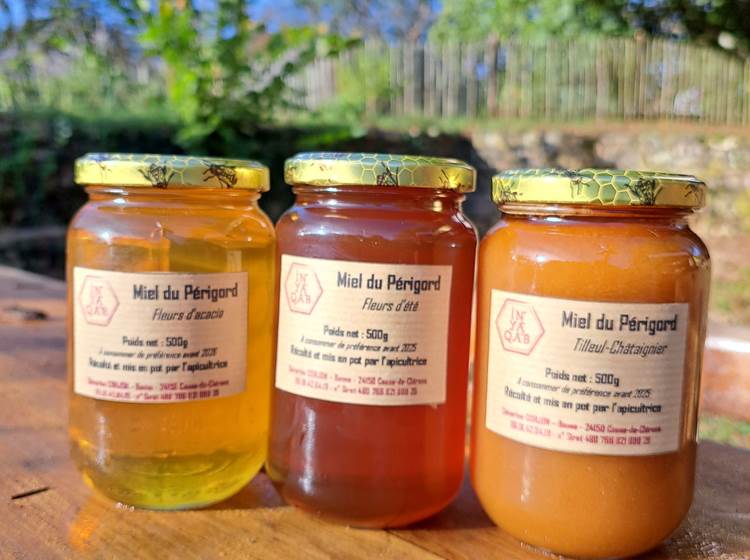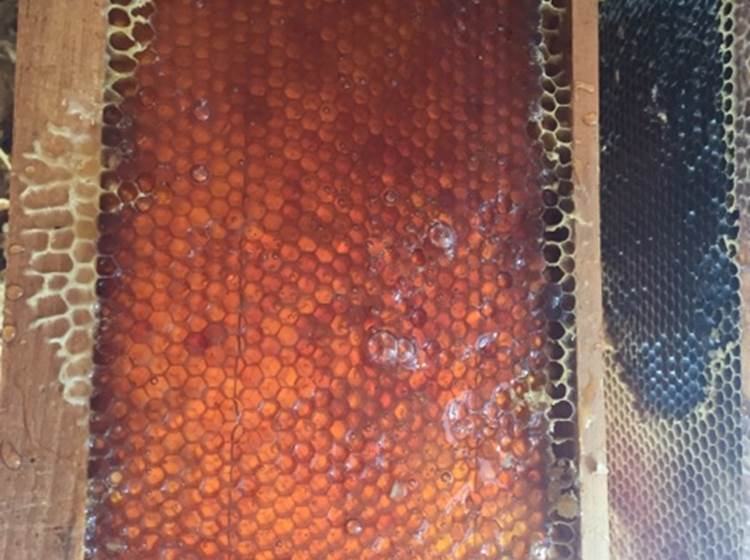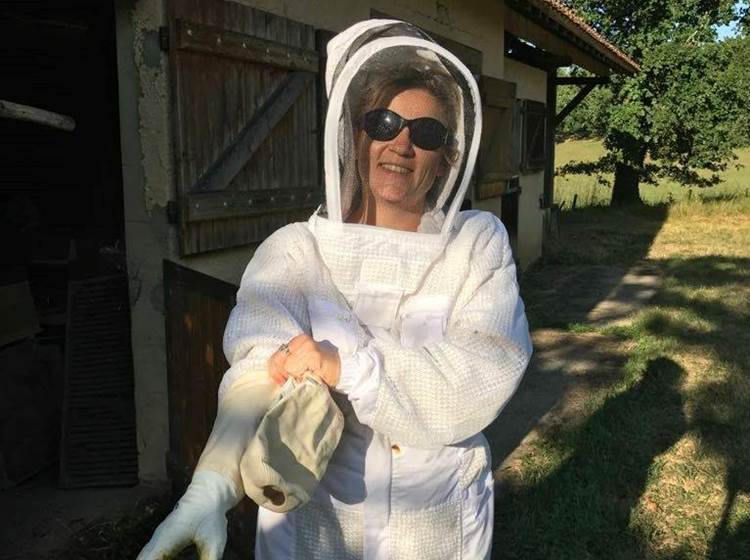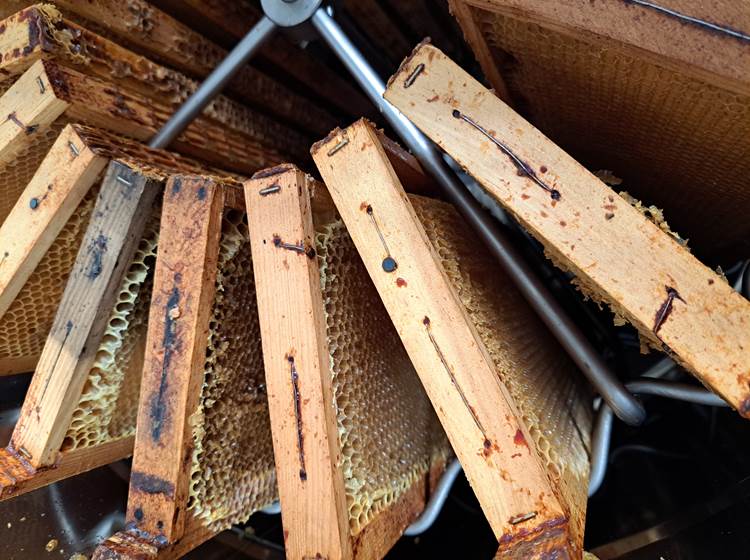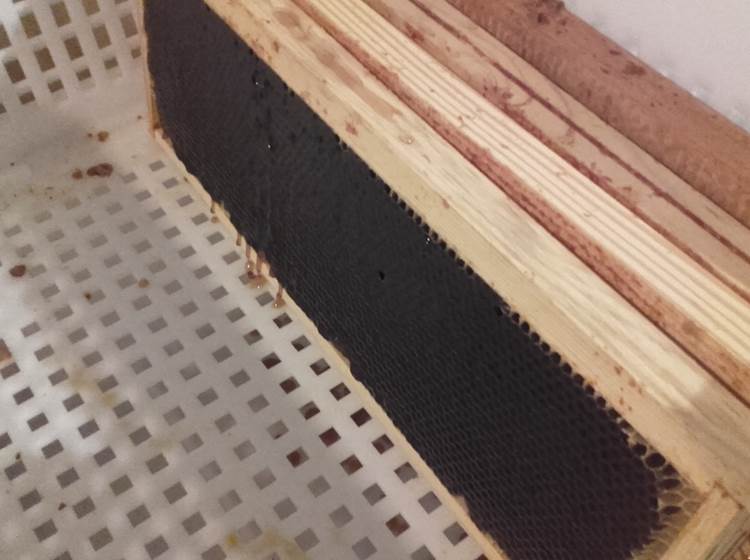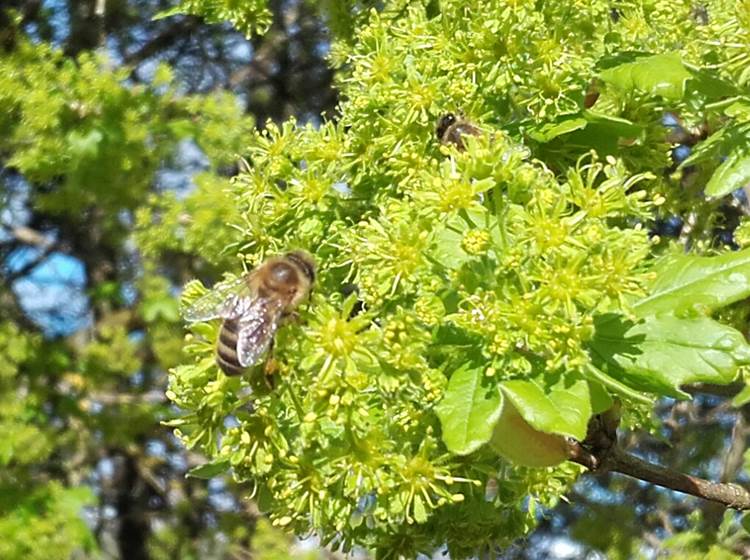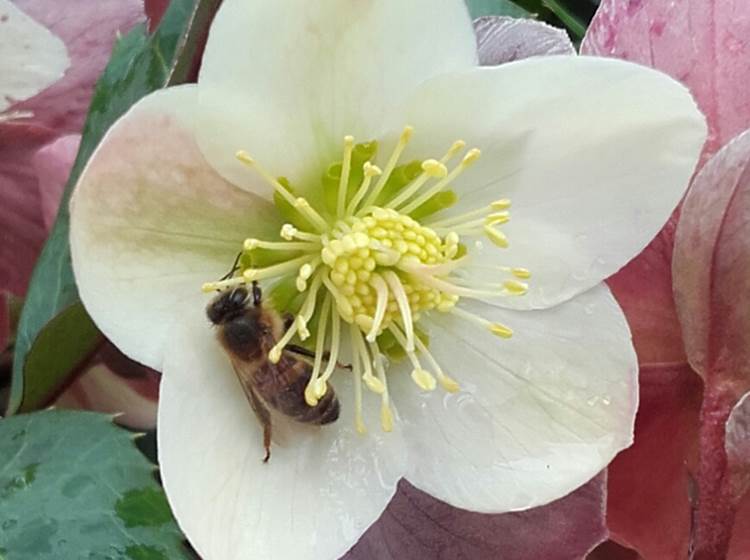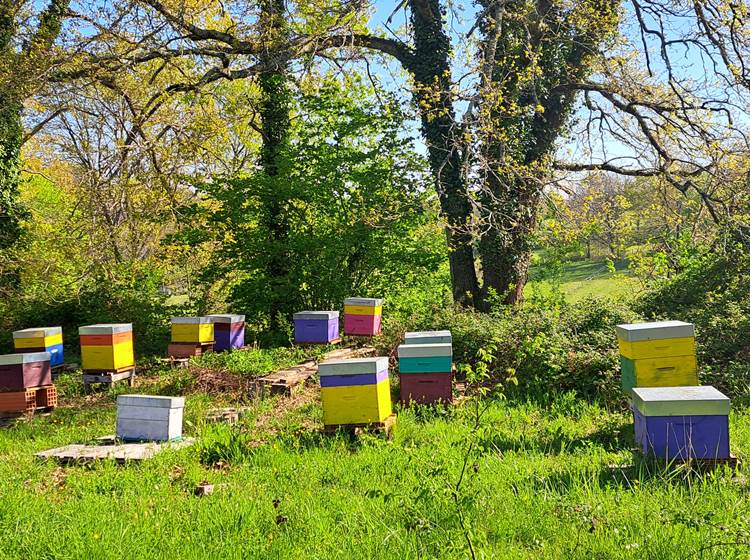With only 3 beehives and training at the CFPPA in Périgueux, Séverine started producing honey in 2017.
Today, around twenty colonies work daily to produce this amber and fragrant nectar we call honey. We offer several types of honey depending on the season; currently:
Spring, summer, forest or linden-chestnut honeys
1kg = 15€ - 500g = 8.5€ - 250g = 5€ - 125g = 3€
Here the bees take advantage of the surrounding nature, from February to October, from hazel trees, first fruit trees and dandelions to heather (or pink heather) and ivy, passing through field maples, acacias, linden trees, chestnut trees and all the wildflowers within reach of our little bees' wings!
They collect pollen and nectar, which they cleverly store in the cells of the frames in the brood chamber (their home – where the Queen lays her eggs). The nurse bees make a mixture of honey and pollen to feed the eggs and larvae. After 9 days, the larva's cell is capped, meaning it's sealed, and the larva grows steadily until metamorphosis (the larva transforms into a pupa – the first stage of the emerging bee). Then, after 21 days, the tiny bee tears through the cap to leave its cell. It then becomes a cleaner bee: it cleans its own cell. It will only venture out to forage after about 20 days, roughly halfway through its life. Indeed, a bee only lives for 40 days! This explains the incredible energy expended each day to gather provisions in order to continually replenish itself!




